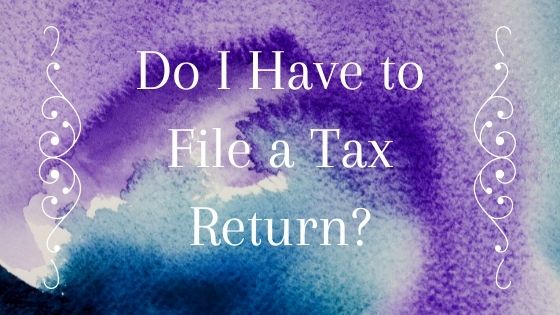The final tax deadline is nearly here, which inevitably leads to questions regarding whether or not certain circumstances preclude one from having to file a state or federal tax return. Today, we’re answering one of the more common questions we’ve fielded: “Do I have to file a tax return if my income is less than the standard deduction? What if someone else can claim me as a dependent?”
First, the short answer: you aren’t required to file a federal tax return if your income for the previous tax year was zero. If you did earn some income, but the total was less than the tax year’s standard deduction, you likewise probably don’t have to file a tax return.
Still, there are some valid reasons to file a tax return despite not being required to do so, including missing out on cash you could claim.
Federal Tax Income Thresholds
Each year, the standard deduction is adjusted to keep pace with inflation. This deduction is the amount taxpayers may withhold from taxation; everything earned above this threshold is taxed. This year, the standard deduction is $12,550 for single filers, $25,100 for joint filers, or $18,800 for those who are filing as the head of their household.
If you are married filing separately, you’ll need to file a return irrespective of your income.
If you are 65 years of age or older, your standard deduction is slightly greater, if slightly more complicated. This year, the deduction is $13, 900 for single filers, $13,900 for married filing separately if one spouse is 65 or older, $15,250 for married filing separately if both spouses are 65 or older, $26,450 for joint filers if one spouse is 65 or older, $27,800 for married filing jointly if both spouses are 65 or older, $20,500 for those who are filing as the head of their household, and $26,450 for qualifying widow(er)s. (A qualifying widow(er) is defined as one who as lost their spouse within the past 2 tax years and has a dependent child.)
What If Someone Else Is Going to Claim Me as a Dependent?
If someone else will be claiming you as a dependent, your income thresholds are different, and your income will be classified as either earned or unearned. The threshold evaluates the combined total from these revenue categories, then further categorizes you by age, disability or lack thereof, and whether you are single or married.
In this complex situation, especially if you aren’t working closely with a qualified CPA, I recommend using the interactive tool on the IRS website to evaluate whether or not you are required to file a tax return.
Other Requirements
Irrespective of your income, if you are an undocumented immigrant, you must file a tax return if you participated in trade or business within the US.
- If you owe additional tax, you must file a federal tax return. Common categories include:
- The alternative minimum tax
- Additional tax on any qualified retirement plans or HSA plans you paid into
- The “nanny tax” for household staff
- Taxes on tips that were not reported to your employer
- If you received funds from a specific HSA or MSA
- If you claimed the premium tax credit in 2020 and funds were disbursed to your insurer
- If you were paid by a church or church-operated organization that did not pay into Medicare or SS, and you earned income through self-employment
This list is not comprehensive. If you earned these or other niche income types, you will benefit from working directly with a qualified CPA.
Why You May Want to File In Every Case
Filing a tax return every year is a protective measure against identity theft. If you don’t file, this leaves an opportunity open for a thief to use your SSN and Tax ID to file in your place. If you are eligible to claim a refund in any amount, the thief will be able to take it. Furthermore, the information they can gain through their malicious use of your SSN and Tax ID could be catastrophic.
Filing a tax return may seem like a hassle, but it pales in comparison to the nightmare that is battling identity theft.
State Income Taxes
In NJ, income from wages, salaries, rental properties, gambling, and goods and services are all taxed. Residents of New Jersey who earn income above the taxable minimum must pay state income tax. Residents who spend fewer than 180 days in-state are subject to the same guidelines, as are individuals who live out of state but earn income here in New Jersey.


